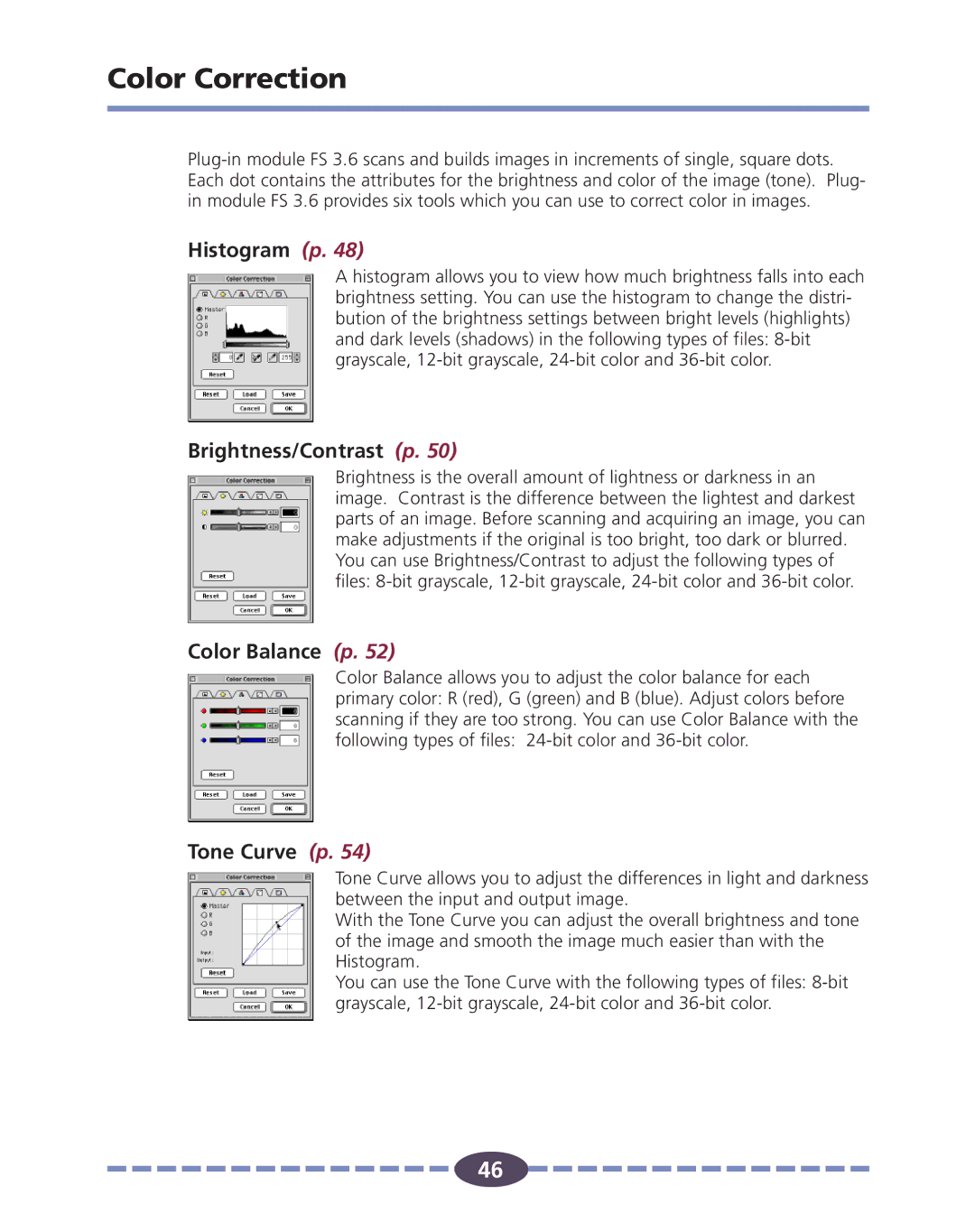
Color Correction
Histogram (p. 48)
A histogram allows you to view how much brightness falls into each brightness setting. You can use the histogram to change the distri- bution of the brightness settings between bright levels (highlights) and dark levels (shadows) in the following types of files:
Brightness/Contrast (p. 50)
Brightness is the overall amount of lightness or darkness in an image. Contrast is the difference between the lightest and darkest parts of an image. Before scanning and acquiring an image, you can make adjustments if the original is too bright, too dark or blurred. You can use Brightness/Contrast to adjust the following types of files:
Color Balance (p. 52)
Color Balance allows you to adjust the color balance for each primary color: R (red), G (green) and B (blue). Adjust colors before scanning if they are too strong. You can use Color Balance with the following types of files:
Tone Curve (p. 54)
Tone Curve allows you to adjust the differences in light and darkness between the input and output image.
With the Tone Curve you can adjust the overall brightness and tone of the image and smooth the image much easier than with the Histogram.
You can use the Tone Curve with the following types of files:
46
![]()
![]()
![]()
![]()
![]()
![]()
![]()
![]()
![]()
![]()
![]()
![]()
![]()
![]()
![]() 46
46![]()
![]()
![]()
![]()
![]()
![]()
![]()
![]()
![]()
![]()
![]()
![]()
![]()
![]()
![]()
